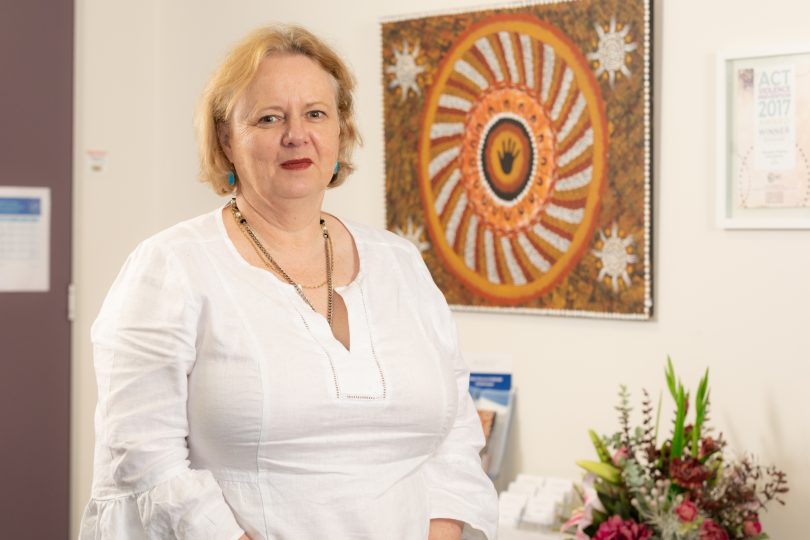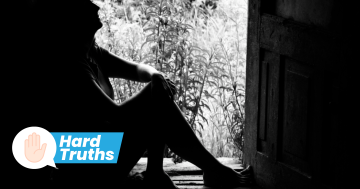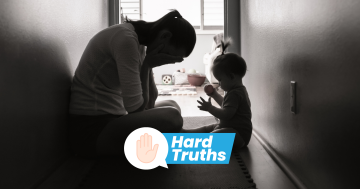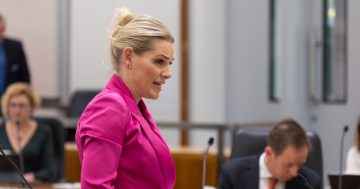
DVCS interim general manager Glenda Stevens is encouraging Canberrans to reach out if they need support. Photo: Michelle Kroll.
The Domestic Violence Crisis Service (DVCS) experienced a 30 per cent decrease in contacts over the Christmas and New Year period, raising concern that some people in danger aren’t able to access the help they need.
Total contacts from 25 December and 3 January fell from 1234 in 2019 to 860 in 2020, while face-to-face contacts fell from 40 to 28.
Lockdowns, travel restrictions and uncertainty around COVID-19 have all contributed to the decline, DVCS interim general manager Glenda Stevens said, explaining that some victims of domestic violence may be stuck at home with the perpetrator and are unable to reach out.
However, there has been a sharp increase in anonymous and online contacts. Between March and April 2020, the service recorded a 300 per cent increase in anonymous contacts.
“Normally, people who contact us for the first time tend to be anonymous so that could indicate that there are more people experiencing violence for the first time,” Ms Stevens said.
“Contacts online, like Facebook and email, indicate that the person who is perpetrating the violence is still in the home and the one subject to violence does not want [the perpetrator] to know they are contacting DVCS or seeking information.
“Hence, they are contacting us in alternative ways.”
DVCS is preparing for more contacts in the coming weeks as speaking with family and friends over the holidays may encourage some people to reach out for help, and the perpetrator may return to work.
Cuts to JobSeeker and JobKeeper payments are also expected to increase the frequency of violence due to added financial stress.
Isolation and self-quarantine requirements remain a concern for DVCS as some victims of domestic violence remain unaware help is available if they want to leave a dangerous domestic situation.
“If you are required to be in isolation or self-quarantine and being subjected to domestic or family violence, you can seek help from DVCS,” Ms Stevens said. “We can support you manage your next steps to access a safe alternative.”
In total, DVCS managed over 70,000 engagements and almost 3,000 face-to-face engagements in 2020.
DVCS created a dedicated page on their website to help people increase their safety while at home, especially during self-isolation or quarantine.
DVCS’s free service can be reached 24/7 on 6280 0900, via SMS on 0421 268 492, through email at crisis@dvcs.org.au or on their website dvcs.org.au. In an emergency, call triple zero (000).
The confidential contact form is available here.





















